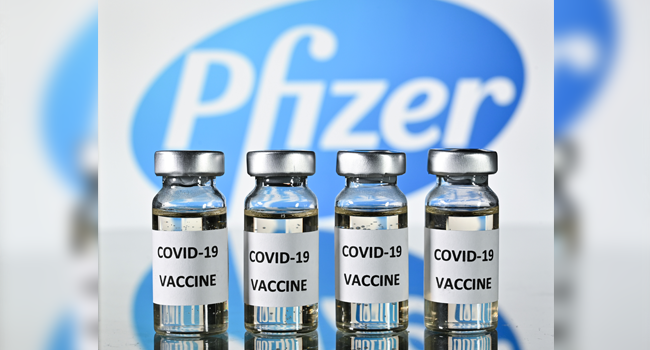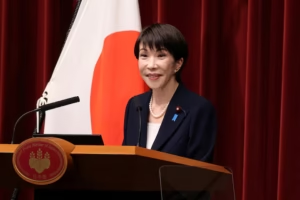
Israel received its first batch of Pfizer’s coronavirus vaccine Wednesday, with Prime Minister Benjamin Netanyahu declaring the pandemic’s end was “in sight” and vowing to get the first jab.
“This is a great celebration for Israel,” he said on the tarmac at Ben Gurion airport, near Tel Aviv, as a fork-lift truck started unloading the cargo from a red and yellow DHL air freighter.
The shipment was the first of eight million doses ordered from pharmaceutical giant Pfizer and its partner BioNTech.
It came ahead of Hanukkah, the Jewish Festival of Lights, which begins on Thursday.
“The end is in sight,” Netanyahu said about the disease which has infected 348,948 Israelis, 2,932 of them fatally, according to a Wednesday update.
“What is important to me is that Israeli citizens get vaccinated,” he added.
“I want to serve as an example to them and I intend to be the first to be injected with this vaccine in the state of Israel.”
The Pfizer vaccine has yet to receive the necessary regulatory approvals for use in Israel but Netanyahu said he expected it to receive clearance “in the very near” future.
The results of third-phase clinical trials showed that the vaccine was 90 percent effective in preventing Covid-19 symptoms and did not produce adverse side effects among thousands of volunteers.
Britain started inoculating its citizens with the vaccine on Tuesday.
Israel has also contracted to buy six million Covid-19 vaccine doses from US biotech firm Moderna which are expected to be delivered in 2021, giving a total of 14 million shots for its population of nine million.
Both medications require two doses to be administered for optimal protection.
The Pfizer vaccine needs to be stored at the ultra-low temperature of -70 degrees Celsius (-94 Fahrenheit), posing handling and storage challenges.
– ‘Amazing’ facilities –
At the airport, Netanyahu praised “our amazing logistical storage centre, which is a few minutes from here, with refrigeration and the highest medical standards in the world”.
Israel imposed a second nationwide lockdown in September, when the country had one of the world’s highest per capita infection rates.
Restrictions have since been gradually eased but infection rates are again on the rise.
On Monday, Netanyahu’s office announced a sweeping night-time curfew but it has so far not received the cabinet approval required for its implementation and no details have been published.
Israel’s government has not yet commented on whether its vaccine procurement would cater for Palestinians in the occupied West Bank or the Gaza Strip.
The Palestinian Authority says that over 75,500 people have so far been infected with coronavirus in the West Bank and 712 have died.
In the Israeli-blockaded Gaza Strip there have been about 25,500 infections and 155 fatalities.
On Monday, the strip’s Hamas rulers said Gaza had received 20,000 test kits from the World Health Organization, after warning it could no longer perform testing due to a shortage of equipment.
Facing a surge in cases, Hamas has also announced a lockdown on weekends lasting from December 11 to the end of the month. It also closed schools, universities, kindergartens and mosques.
AFP








